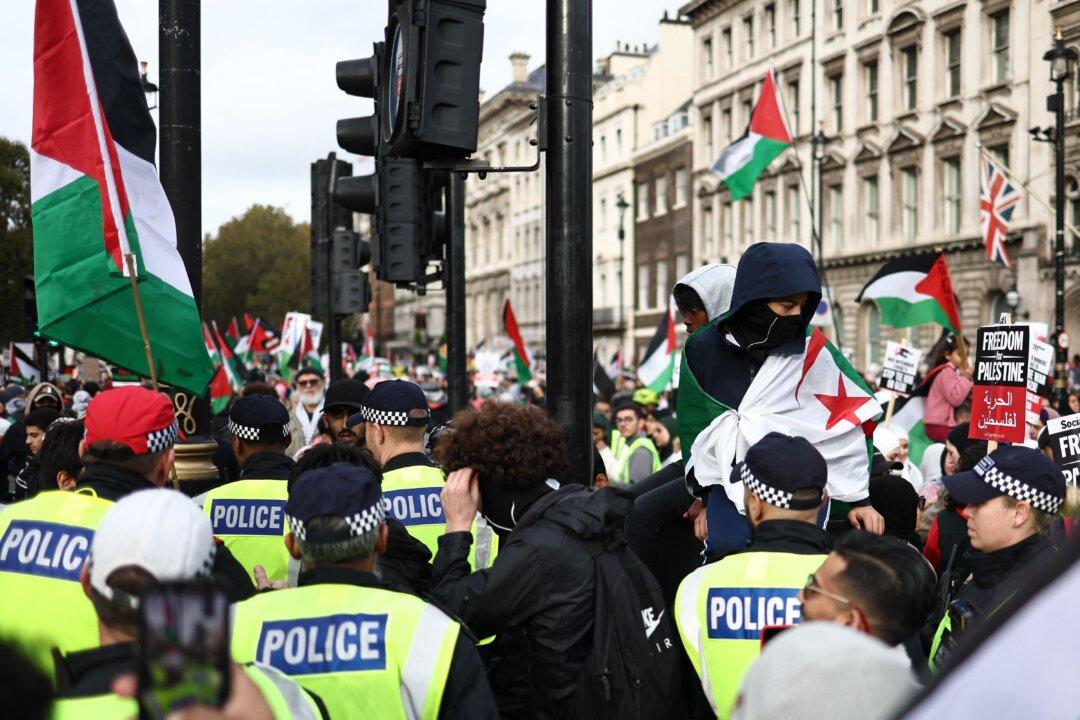Police need space to make independent operational decisions, a police chief said on Thursday ahead of a controversial pro-Palestinian march on Armistice Day.
Gavin Stephens, chairman of the National Police Chiefs’ Council (NPCC), said it’s “really important that the public debate doesn’t feature in our operational decision-making” because it would “fundamentally undermine” how policing works in the UK.





